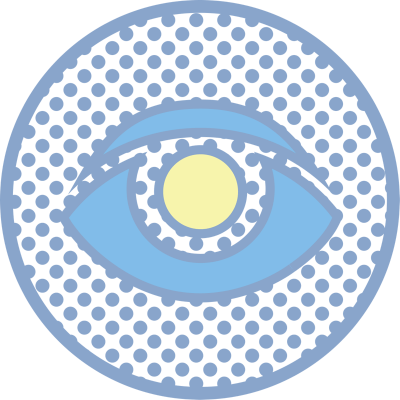Uvea

What is Uvea?
The human eye is composed of three layers of which, Uvea is the middle one. Uvea is not a common term we get to hear often. However, it is one of the complex structures in the eye that’s critical to proper vision. In this section, let’s quickly understand a little more about Uvea and the diseases that could affect its functioning.
Uvea – Problems affecting this portion of the eye
Uveitis is one of the most common diseases affecting the Uvea. It refers to inflammation of the Uvea and could occur due to an infection from a virus or bacteria. It could also be a secondary condition that develops due to some other illness present in your body like rheumatoid arthritis, tuberculosis or syphilis and is called as systemic Uveitis.
Uveal tumors, cysts, and uveal trauma are some of the other issues arising in the uveal tissue.

Uveal Problems
Now the question arising in your mind would be – how to identify the symptoms before deciding to visit your doctor. Eye pain, severe sensitivity to light, redness of the eye, blurry vision, floaters in the eye are some common symptoms that should ring a bell and get you going to the doctor’s office immediately.

Did you know?
Technically speaking, the Uvea is not a single entity. The Iris, Ciliary Body, and the Choroid (all of them being parts of the human eye) together constitute what is called as the Uvea. Uvea is the biggest pigmented part of your eyes; the other one being the macula (on the retina). All the other parts are colourless.
Uveal Diseases – Analyzing the Root Cause
Your doctor would perform a series of tests on your eyes like visual clarity, eye pressure and even dilate your eyes to check the inside health of it. If your doctor suspects Uveitis, he/she would perform more tests to identify any underlying problem that’s causing this. You would be asked to share your medical history. Tests like an X-Ray to check for tuberculosis and blood work would be done to identify any autoimmune diseases/other conditions. These tests will help rule out systemic Uveitis.
Uveal Treatment – For your good health
In the case of systemic Uveitis, the primary disease would be treated and Uveitis would subside on its own. However, if the infection is restricted only to the Uvea, treatment may involve administration of eye drops or treatment involving antibiotics or corticosteroids.
At Dr. Agarwal’s there are doctors who have specialized in treating Uveal diseases. Utmost care is taken to control the disease at an early stage and the patient is given the best treatment possible to safeguard his/her vision.
FAQ
What is the Uvea in eye anatomy?
What are the functions of the Uvea?
What conditions can affect the Uvea?
How can I maintain the health of my Uvea?

Contact Us
We'd love to hear from you. For feedback, queries or help with booking appointments, please get in touch.
Registered Office, Chennai
1st & 3rd Floor, Buhari Towers, No.4, Moores Road, Off Greams Road, Near Asan Memorial School, Chennai – 600006, Tamilnadu
Mumbai Office
Mumbai Corporate Office: No 705, 7th Floor, Windsor, Kalina, Santacruz (East), Mumbai – 400098.
9594924026